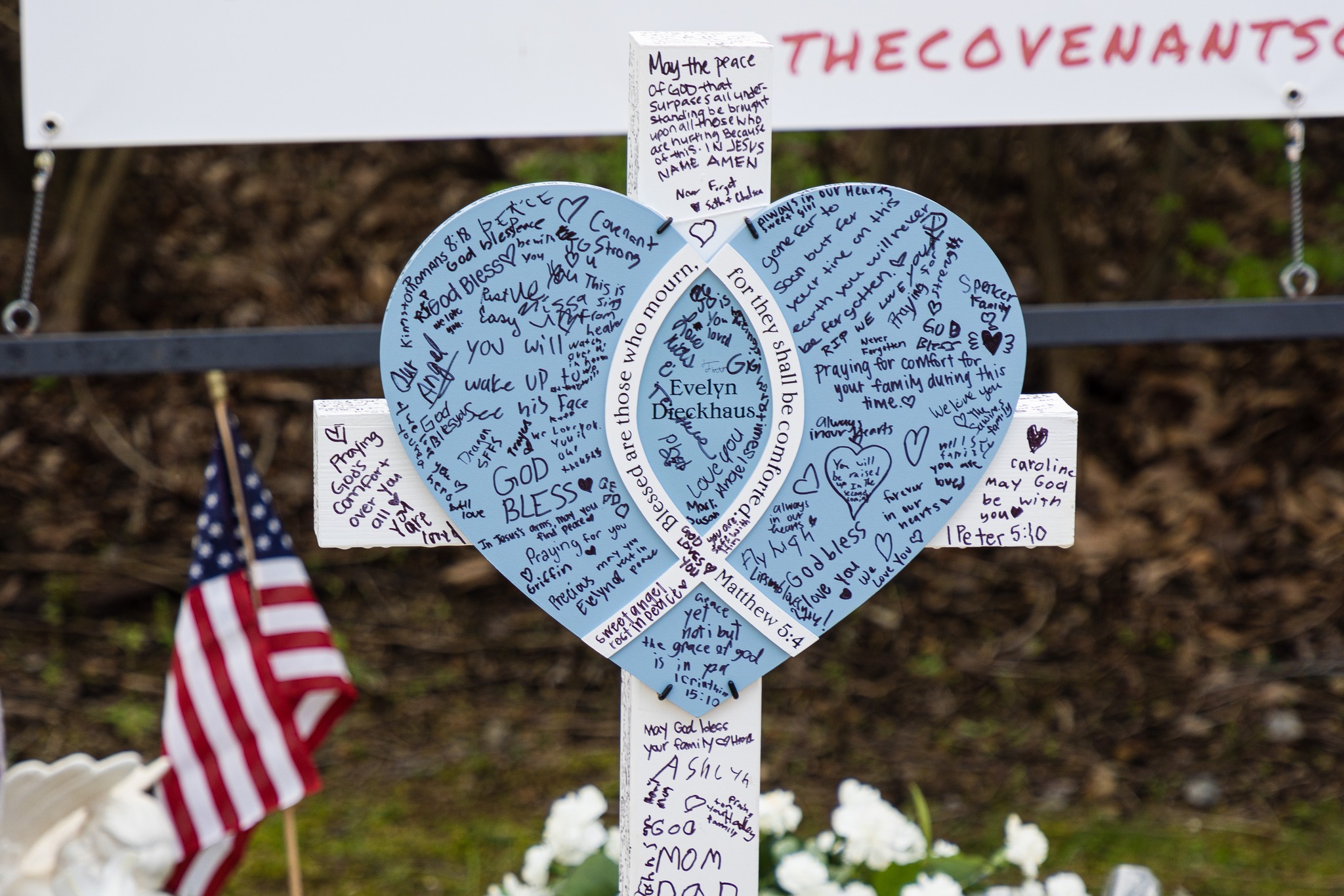FLOWERS: The Untold Story: Attacks Targeting Christians Are on the Rise

When a woman who identified as trans burst into a Nashville school and murdered three adults and three young children last month, an important aspect of the tragedy seemed to trouble mainstream media so much that it was essentially dropped from the narrative: The school and the victims were Christians. While some conservative outlets highlighted the religious element of the massacre and suggested that the shooter’s motives were linked to hostility against the school that she had attended decades before, most journalists ignored that delicate detail which raised the uncomfortable prospect that the Nashville shooting had been a hate crime.
That’s not surprising. Society has become increasingly hostile to Christianity, and any suggestion that Christians are victims is avoided or denied at best and more often ridiculed. We can mourn the Jewish victims of the Tree of Life Synagogue massacre, and we can decry the numerous instances of anti-Muslim bigotry and violence in the wake of 9/11. Still, for some reason, the media hesitate to label anti-Christian violence as an actual phenomenon. At most, it’s folded into some other acceptable “identity marker,” such as race. When a white supremacist burst into the Mother Emmanuel Baptist church in South Carolina a few years ago, the focus was rightly on the racial aspect of the massacre. The fact that these were Christians who had been murdered was also mentioned in passing, but that was treated as a secondary part of the tragedy.
And if you think I’m making this up or that I’m imagining things because I happen to be a Catholic who has her ear attuned to the dog whistle pitch of culture war attacks on my church, you would be wrong. A recent report from the Family Research Institute confirms hate crimes against Christians are rising in the United States and internationally.
According to the report, since 2020, there have been 99 documented instances of government violation of individual rights across 14 Western countries, including the U.S. But the harm doesn’t stop with presidents, prime ministers, and over-zealous police. As the report noted, there have been numerous acts of violence and harassment against both individual Christians and Christian institutions like churches and, as we saw in Nashville, schools.
“Criminal acts of vandalism and destruction of church property are likely symptomatic of a collapse in societal reverence and respect for houses of worship and religion—in this case, churches and Christianity,” the report stated. “Americans appear increasingly comfortable lashing out against church buildings, pointing to a larger societal problem of marginalizing core Christian beliefs, including those that touch on hot-button political issues related to human dignity and sexuality.”
This points to another problem that triggers this increasing violence: Intolerance for conservative, more traditional religious views. What was once respected as legitimate religious belief, much of which was based on Biblical or catechismal foundations, is now commonly accepted as “hate speech” or bigotry. It is difficult to remember a time when a person could say they had a religious opposition to same-sex marriage or same-sex adoptions without being tarred as a bigot. Generation Z has grown up with a tolerance for different lifestyles, different identities, and different pronouns but has acquired a taste for mocking Christian beliefs in traditional marriage, chastity, and, most importantly, the value of unborn human life. And when you can mock something, it is a very short step to attacking it, with the ultimate goal of erasure.
As a child, I was told the stories of the Know-Nothings, Protestant Philadelphians who were threatened by the growing immigrant Catholic communities in the city. They were so hostile toward the Irish, the Italians, and the Poles that they torched an iconic Roman Catholic Church, Old St. Augustine. And there was such acceptance of this hostility that city fire trucks either never arrived or came at such a deliberately slow pace that the church was destroyed. Fortunately, it was rebuilt, an eloquent testament to the endurance of faith.
Those church burnings are not a thing of the past. They are happening today, along with the vandalism of statues and school buildings. Much of this destruction is claimed by pro-abortion activists who were galvanized in the wake of the Dobbs decision overturning Roe v. Wade. Even before that decision was announced last June, groups like “Jane’s Revenge” claimed responsibility for destroying pro-life crisis pregnancy centers and vandalizing church facades.
As a woman who spends a good deal of her time representing asylum applicants, I know what persecution is. I am particularly attuned to religious persecution because it can be subtle, and the damage is not always manifest in physical wounds. It is extremely troubling that the same motivating animus that has forced my clients to flee their own countries is present in this one.
It is even more troubling that we choose to ignore it.
Please follow DVJournal on social media: Twitter@DVJournal or Facebook.com/DelawareValleyJournal


